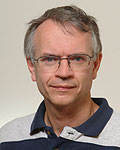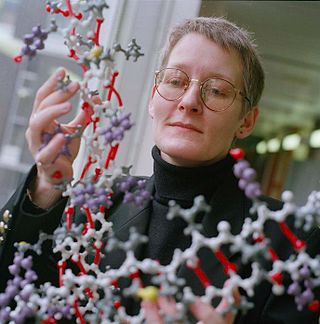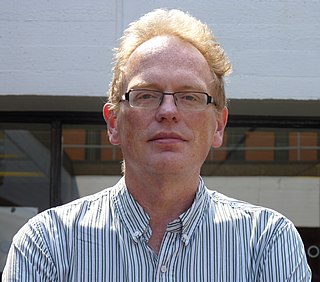
Amos Bairoch is a Swiss bioinformatician and Professor of Bioinformatics at the Department of Human Protein Sciences of the University of Geneva where he leads the CALIPHO group at the Swiss Institute of Bioinformatics (SIB) combining bioinformatics, curation, and experimental efforts to functionally characterize human proteins.
A semantic web service, like conventional web services, is the server end of a client–server system for machine-to-machine interaction via the World Wide Web. Semantic services are a component of the semantic web because they use markup which makes data machine-readable in a detailed and sophisticated way.
The Open Biological and Biomedical Ontologies (OBO) Foundry is a group of people dedicated to build and maintain ontologies related to the life sciences. The OBO Foundry establishes a set of principles for ontology development for creating a suite of interoperable reference ontologies in the biomedical domain. Currently, there are more than a hundred ontologies that follow the OBO Foundry principles.
Semantic publishing on the Web, or semantic web publishing, refers to publishing information on the web as documents accompanied by semantic markup. Semantic publication provides a way for computers to understand the structure and even the meaning of the published information, making information search and data integration more efficient.

Carole Anne Goble, is a British academic who is Professor of Computer Science at the University of Manchester. She is principal investigator (PI) of the myGrid, BioCatalogue and myExperiment projects and co-leads the Information Management Group (IMG) with Norman Paton.
The myGrid consortium produces and uses a suite of tools design to “help e-Scientists get on with science and get on with scientists”. The tools support the creation of e-laboratories and have been used in domains as diverse as systems biology, social science, music, astronomy, multimedia and chemistry.

Apache Taverna was an open source software tool for designing and executing workflows, initially created by the myGrid project under the name Taverna Workbench, then a project under the Apache incubator. Taverna allowed users to integrate many different software components, including WSDL SOAP or REST Web services, such as those provided by the National Center for Biotechnology Information, the European Bioinformatics Institute, the DNA Databank of Japan (DDBJ), SoapLab, BioMOBY and EMBOSS. The set of available services was not finite and users could import new service descriptions into the Taverna Workbench.

Robert David Stevens is a professor of bio-health informatics. and former Head of Department of Computer Science at The University of Manchester
The National Centre for Text Mining (NaCTeM) is a publicly funded text mining (TM) centre. It was established to provide support, advice, and information on TM technologies and to disseminate information from the larger TM community, while also providing tailored services and tools in response to the requirements of the United Kingdom academic community.

Galaxy is a scientific workflow, data integration, and data and analysis persistence and publishing platform that aims to make computational biology accessible to research scientists that do not have computer programming or systems administration experience. Although it was initially developed for genomics research, it is largely domain agnostic and is now used as a general bioinformatics workflow management system.

The iPlant Collaborative, renamed Cyverse in 2017, is a virtual organization created by a cooperative agreement funded by the US National Science Foundation (NSF) to create cyberinfrastructure for the plant sciences (botany). The NSF compared cyberinfrastructure to physical infrastructure, "... the distributed computer, information and communication technologies combined with the personnel and integrating components that provide a long-term platform to empower the modern scientific research endeavor". In September 2013 it was announced that the National Science Foundation had renewed iPlant's funding for a second 5-year term with an expansion of scope to all non-human life science research.
Utopia Documents is a semantic, scientific, web-enabled PDF reader that is part of the Utopia toolset. Utopia Documents can be downloaded for free.

Teresa K. Attwood is a Professor of Bioinformatics in the Department of Computer Science and School of Biological Sciences at the University of Manchester and a visiting fellow at the European Bioinformatics Institute (EMBL-EBI). She held a Royal Society University Research Fellowship at University College London (UCL) from 1993 to 1999 and at the University of Manchester from 1999 to 2002.
A bioinformatics workflow management system is a specialized form of workflow management system designed specifically to compose and execute a series of computational or data manipulation steps, or a workflow, that relate to bioinformatics.

Andrew M. Brass is a Professor of Bioinformatics at the University of Manchester in the Department of Computer Science and Faculty of Life Sciences.
Norman William Paton is a Professor in the Department of Computer Science at the University of Manchester in the UK where he co-leads the Information Management Group (IMG) with Carole Goble.

The OnlineHPC was a free public web service that supplied tools to deal with high performance computers and online workflow editor. OnlineHPC allowed users to design and execute workflows using the online workflow designer and to work with high performance computers – clusters and clouds. Access to high performance resources was available as directly from the service user interface, as from workflow components. The workflow engine of the OnlineHPC service was Taverna as traditionally used for scientific workflow execution in such domains, as bioinformatics, cheminformatics, medicine, astronomy, social science, music, and digital preservation.
Open PHACTS was a European initiative public–private partnership between academia, publishers, enterprises, pharmaceutical companies and other organisations working to enable better, cheaper and faster drug discovery. It has been funded by the Innovative Medicines Initiative, selected as part of three projects to "design methods for common standards and sharing of data for more efficient drug development and patient treatment in the future".
Enhanced publications or enhanced ebooks are a form of electronic publishing for the dissemination and sharing of research outcomes, whose first formal definition can be tracked back to 2009. As many forms of digital publications, they typically feature a unique identifier and descriptive metadata information. Unlike traditional digital publications, enhanced publications are often tailored to serve specific scientific domains and are generally constituted by a set of interconnected parts corresponding to research assets of several kinds and to textual descriptions of the research. The nature and format of such parts and of the relationships between them, depends on the application domain and may largely vary from case to case.

Biocuration is the field of life sciences dedicated to organizing biomedical data, information and knowledge into structured formats, such as spreadsheets, tables and knowledge graphs. The biocuration of biomedical knowledge is made possible by the cooperative work of biocurators, software developers and bioinformaticians and is at the base of the work of biological databases.










